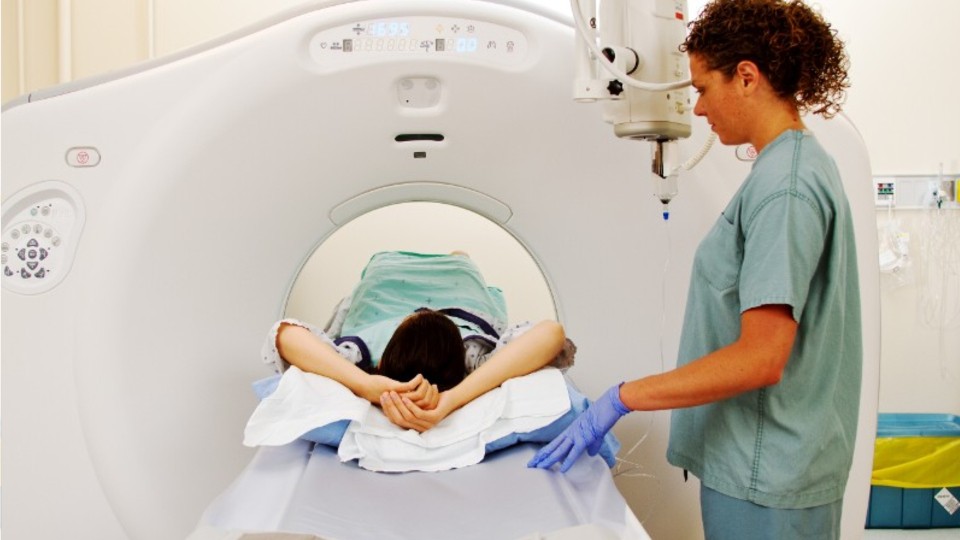Radiologic Technologists & Technicians
Computed Tomography Technologist (CT Tech), Radiographer, Radiologic Technologist (RT), X-Ray Technologist (X-Ray Tech)
What they do:
Take x-rays and CAT scans or administer nonradioactive materials into patient's bloodstream for diagnostic or research purposes. Includes radiologic technologists and technicians who specialize in other scanning modalities.
On the job, you would:
- Position imaging equipment and adjust controls to set exposure time and distance, according to specification of examination.
- Position patient on examining table and set up and adjust equipment to obtain optimum view of specific body area as requested by physician.
- Monitor patients' conditions and reactions, reporting abnormal signs to physician.
Knowledge
Health
- medicine and dentistry
Arts and Humanities
- English language
Business
- customer service
- administrative services
Engineering and Technology
- computers and electronics
Skills
Basic Skills
- listening to others, not interrupting, and asking good questions
- reading work related information
Social
- understanding people's reactions
- looking for ways to help people
Abilities
Verbal
- listen and understand what people say
- communicate by speaking
Ideas and Logic
- notice when problems happen
- order or arrange things
Personality
People interested in this work like activities that include practical, hands-on problems and solutions.
They do well at jobs that need:
- Empathy
- Cooperation
- Cautiousness
- Attention to Detail
- Dependability
- Integrity
Technology
You might use software like this on the job:
Medical software
- eClinicalWorks EHR software
- MEDITECH software
Presentation software
- Microsoft PowerPoint
Spreadsheet software
- Microsoft Excel
Education
Education: (rated 3 of 5)
associate's degree or
certificate after high school
usually needed
certificate after high school
usually needed
Job Outlook
Average
New job opportunities are likely in the future.
Explore More
- Cardiovascular Technologists & Technicians
- Diagnostic Medical Sonographers
- Magnetic Resonance Imaging Technologists
- Neurodiagnostic Technologists
- Radiation Therapists
You might like a career in one of these industries:
See more details at O*NET OnLine about Radiologic Technologists & Technicians.





